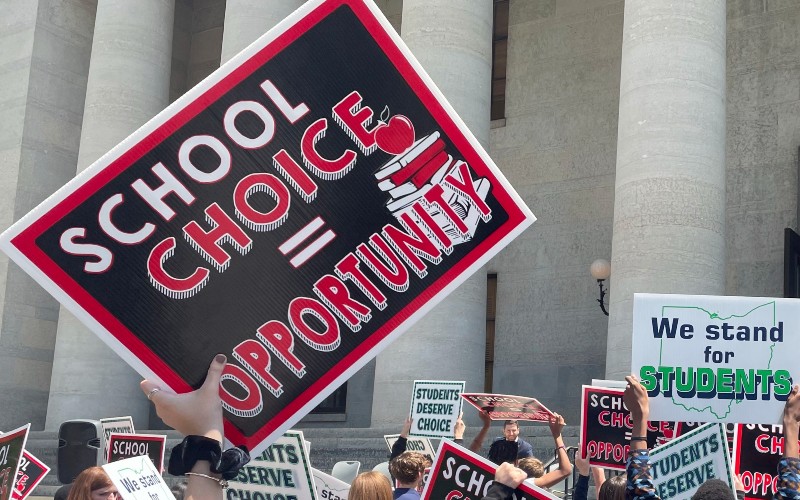It’s often said that everything’s bigger in Texas, and this is now one of the largest school voucher programs in a country that continues to embrace choice in education.
The program signed by the governor (pictured below, right) will use public tax dollars to help parents and families cover things including private school tuition. This caps off a years-long effort by Republicans in the state.
Corey DeAngelis, a Texas resident, is Senior Fellow at the American Culture Project and a Visiting Fellow at the American Institute for Economic Research.
He said in an interview with AFN this is a huge win.
“We've got 16 states down that are all red states, Republicans. The GOP has emerged as the parents’ party, and the Democrats are doubling down on dumbing down the population in states like California and in Colorado where they're trying to label misgendering your own child as child abuse. They can use that to rip your children away from you.”
In Colorado, HB 1312 is also known as the Kelly Loving Act. It would make "misgendering" and "deadnaming" offenses that could be considered discrimination.
The bill’s next stop is the Colorado Senate Judiciary Committee. If it passes, it will move to the floor for a vote before the entire senate.

In Texas, DeAngelis said this $1 billion will provide scholarships for about 100,000 students in the initial year. He added this makes Texas the 16th state to pass a universal school choice policy in the last four years.
Coming up this next school year, Texas families can receive $10,000 per year. If a child has disabilities, he or she can qualify for up to $30,000 a year.
Twenty-four states plus Washington, D.C., have school choice voucher programs, according to EdChoice.org.
The Texas Senate had passed a school choice bill six times in 10 years. As it finally cleared the hurdle, Abbot’s Lt. Governor, Dan Patrick, a longtime advocate of choice in education, called the bill “one of the hallmark policy victories” of his career. The program will be capped at $1 billion for the first year and cover up to 90,000 students, but it could cost up to $4.5 billion a year by 2030.
“It’s great to see the laboratories of democracy working as intended in red states at least, but in blue states they've gone off the deep end. They’ve just been so ridiculous with their anti-parent rhetoric and policies that they're passing left and right. At some point maybe they'll come along and listen to families, listen to the kids union, as opposed to just the teachers union."







